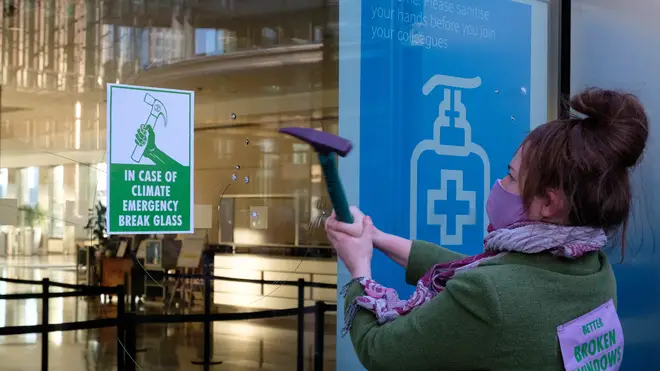
Oli Dugmore 4am - 7am
5 May 2021, 15:54

Market Forces said that the bank’s current plans allows it to finance coal well into the 2030s.
Barclays shareholders have defeated an attempt by campaigners to force the bank to phase out the multi-billion pound financing it provides to coal, oil and gas projects around the world.
Investors voted against the proposal which set timeframes consistent with two articles of the 2015 Paris climate agreement.
The suggestion from Market Forces, an affiliate member of Friends of the Earth Australia, would also have required the bank to produce an annual report on how it is progressing against that strategy.
“The bank’s current policies will allow funding of the coal industry well into the 2030s, with no end date in sight,” said Adam McGibbon, the UK campaign lead at Market Forces.
Last year, Barclays unveiled a target to get to net zero – that is to say not emitting any more greenhouse gases than it absorbs.
But Mr McGibbon added that in 2020 alone Barclays has provided financing worth 27 billion US dollars (£19 billion) to the coal, oil and gas sectors.
The bank has also increased its funding of fracking, tar sands and Arctic oil by nearly a third compared to 2019, Mr McGibbon told shareholders during the Barclays annual general meeting.
“Despite what the board claims, these are not the actions of a bank aligning itself with the Paris Agreement. Investor pressure forced Barclays to improve their policies last year, and investor pressure is needed again to continue that improvement.”
In response, chairman Nigel Higgins defended Barclays’ climate change position.
“We agree with the nature of the climate challenge,” Mr Higgins said.
“We totally agree that this has to be about action, and not just words. It would be extraordinarily foolish if we were just about words because the data that we have committed to publish is going to reveal whether we back up our promises with action.”
However, he said that the bank disagrees with some of the data on fossil fuel financing that Mr McGibbon cited. It measures financing provided to oil majors, regardless of what those companies spend that money on.
He said that Barclays believes it is important to work with these companies to help them transition to climate-friendly business models.
“A very large number, we suspect, of the major players in global energy today will remain players in global energy in the future, but their energy mix will be materially different. And they need help, advice and financing on that journey,” he added.
Market Forces resolution needed 75% of the vote to pass, it received a little over 14%.
Mr McGibbon said the result was a “major concern”.
However, he added: “There is a healthy group of investors who see past Barclays’ greenwash, who will need to work hard over the next year to convince their colleagues to demand stronger climate action from the bank.”